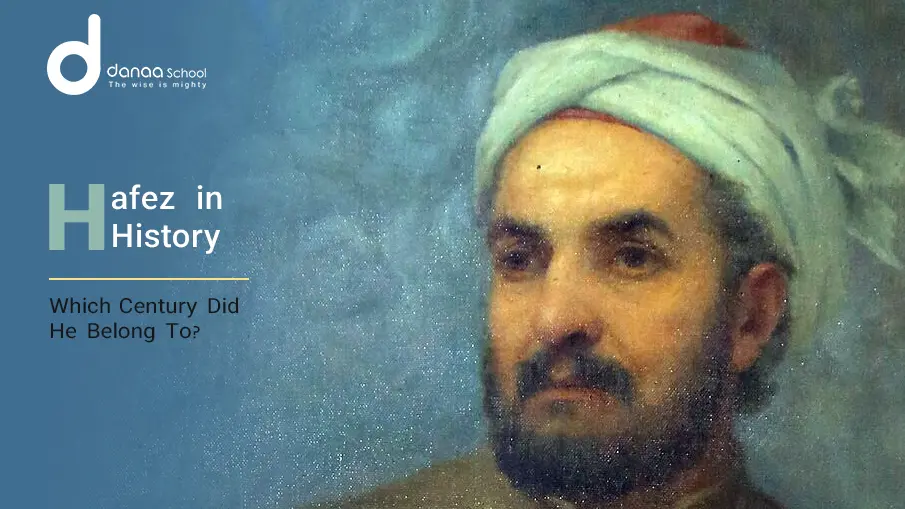Who is the most Famous Persian Poet
Who is the most Famous Persian Poet
In the rich tapestry of Persian literature, one name consistently shines brighter than the rest: Rumi. Known for his deeply spiritual and profoundly insightful poetry, Rumi transcends cultural and temporal boundaries. His works, written over 700 years ago, continue to resonate with modern readers and thinkers. But what makes Rumi the most famous Persian poet? Let’s dive into his life, his poetry, and the lasting impact he has on both literature and contemporary education, especially at Danaa School.
The Life of Rumi: A Glimpse into His World
Jalal ad-Din Muhammad Rumi, born in 1207 in Balkh (present-day Afghanistan), spent most of his life in Konya, now part of modern-day Turkey. Rumi’s life was a blend of intellectual pursuits, profound personal relationships, and intense spiritual exploration. His father, Baha’ ud-Din Walad, was a prominent theologian, and his family moved to avoid the Mongol invasions, settling finally in Konya.
Here, Rumi developed into a revered scholar and teacher. However, it was his meeting with Shams-e Tabrizi, a wandering dervish, that transformed him from a scholarly teacher into a passionate mystic poet. Their bond, marked by a deep spiritual friendship, became the catalyst for Rumi’s most profound poetic works.
Rumi’s Poetry: A Journey of Mystical Exploration
Rumi’s poetry, written predominantly in Persian, encompasses themes of love, longing, unity, and divine connection. His most famous work, the Masnavi, often referred to as the “Persian Qur’an,” is a six-volume spiritual epic that explores the intricacies of human emotion and divine love.
Key Themes in Rumi’s Poetry
– Divine Love: Rumi’s poems often reflect a deep yearning for unity with the Divine. He uses metaphorical language to describe the soul’s journey toward spiritual enlightenment.
– Human Connection: Through his verses, Rumi emphasizes the importance of love and compassion in human relationships as reflections of divine love. See Rumi’s quotes on friendship.
– Self-Discovery: His poetry encourages introspection and self-awareness, guiding readers to discover their spiritual paths.
Here’s an excerpt from one of his famous poems:
“Let yourself be silently drawn by the strange pull of what you love. It will not lead you astray.”
Rumi’s Influence on Persian Literature and Beyond
Rumi’s poetry has had a profound impact not only on Persian literature but also on global literary and spiritual traditions. His works have been translated into numerous languages, making him one of the most popular poets worldwide.
Influence on Literature: Rumi’s storytelling techniques, blending narrative with spiritual teaching, have influenced countless writers and poets. His works continue to inspire literary styles and thematic explorations in contemporary literature.
Cultural Impact: Rumi’s ideas of universal love and unity transcend religious and cultural boundaries, making him a bridge between Eastern and Western thought. His poetry is celebrated in both secular and spiritual contexts.
Modern Adaptations: In recent years, Rumi’s works have been adapted into music, visual art, and even dance. His words continue to inspire creativity across various artistic mediums.
Rumi’s Legacy at Danaa School: Inspiring Modern Education
At Danaa School, we believe in nurturing the holistic development of our students. Rumi’s teachings on love, self-discovery, and human connection align perfectly with our educational philosophy. His emphasis on introspection and spiritual growth inspires our curriculum, encouraging students to explore beyond conventional academic boundaries.
Integrating Rumi’s Teachings at Danaa School
1. Literary Studies: Rumi’s poetry is an integral part of our literature program, where students analyze his works to understand deeper philosophical and spiritual themes.
2. Character Building: His ideas about love, compassion, and self-awareness help shape our character education initiatives, fostering empathy and emotional intelligence in students.
3. Creative Expression: Inspired by Rumi’s creativity, we encourage students to explore their own artistic talents through poetry, music, and visual arts.
Exploring Rumi’s Philosophy Through Education
At Danaa School, we strive to integrate Rumi’s profound insights into our educational practices, making learning a more enriching and spiritually fulfilling experience. Here’s how we do it:
1. Fostering Empathy and Understanding
Rumi’s poetry often delves into the human condition and the shared experiences of love, sorrow, and joy. We use these themes to teach students about empathy and understanding, encouraging them to connect with others on a deeper level.
2. Encouraging Creative Thinking
Rumi’s imaginative use of metaphors and storytelling inspires students to think creatively and express their thoughts through various artistic forms. We incorporate creative writing and arts into our curriculum, allowing students to explore their inner worlds and express their unique perspectives.
3. Promoting Spiritual Growth
While maintaining a secular approach, we use Rumi’s teachings to promote personal reflection and spiritual growth. Discussions about his poetry encourage students to ponder life’s deeper questions and develop a sense of purpose and direction.
4. Building a Community of Learners
Rumi’s emphasis on love and unity helps us foster a supportive and collaborative learning environment. Students learn to appreciate diversity and work together, building a strong sense of community within our school.
FAQs
Who is the greatest Persian poet of all time?
Many consider Jalal ad-Din Muhammad Rumi, commonly known as Rumi, to be the greatest Persian poet of all time. His profound and mystical poetry has captivated readers for centuries.
Who is the most widely read Persian poet?
Rumi is the most widely read Persian poet. His works have been translated into numerous languages and continue to inspire readers around the world.
Who is the father of Persian poetry?
While Rumi is often celebrated for his contributions, the title “father of Persian poetry” is usually attributed to Rudaki, an earlier poet who is considered the first great literary figure in Persian literature.
Who is one of Iran's most famous poets?
Rumi is one of Iran’s most famous poets. His legacy extends beyond Iran, influencing literary traditions globally.
Is Iran known for poetry?
Yes, Iran is renowned for its rich tradition of poetry. Persian literature boasts a long history of illustrious poets, with Rumi being one of the most prominent figures.
Who was the first poet of Farsi?
The first notable poet of Farsi (Persian) is generally considered to be Rudaki. He laid the foundation for Persian poetry that would flourish in subsequent centuries.
What is the most famous Persian literature?
Among the most famous works of Persian literature are Rumi’s “Masnavi” (also known as “Mathnawi” or “Masnavi-i Ma’navi”), which is considered one of the greatest spiritual masterpieces ever written.
Conclusion
Rumi’s poetry offers timeless wisdom that continues to captivate hearts and minds. His profound reflections on love, spirituality, and human experience make him not just the most famous Persian poet but a universal beacon of poetic brilliance. At Danaa School, we embrace Rumi’s legacy to inspire our students, fostering a deeper connection to literature, culture, and self-discovery.
Curious about how Rumi’s teachings can enhance your educational journey? Visit Danaa School to learn more about our innovative curriculum and how we integrate timeless wisdom into modern education. Join us in creating a learning environment that values love, creativity, and holistic development!










